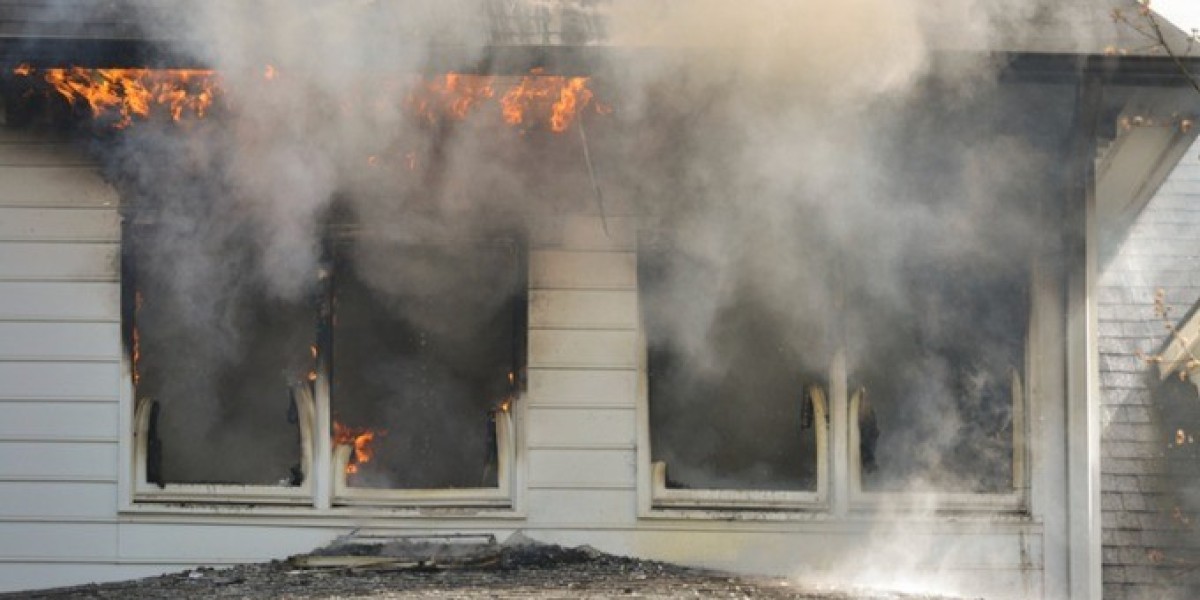A house fire can be one of the most devastating experiences a homeowner ever faces. In a matter of minutes, belongings, memories, and the very structure of your home can be consumed by flames and smoke. But once the fire is out and the initial shock settles, knowing what to do next can be overwhelming.
This guide outlines the essential steps you should take immediately after a fire damages your home protecting your property, your health, and your long-term financial well-being. Whether you’re dealing with minor smoke damage or a major structural loss, the decisions you make in the first 24–72 hours are crucial.
1. Ensure Safety Before Re-Entering the Property
The first and most important step after a house fire is to prioritize your safety. Even if the fire is fully extinguished, hidden dangers remain. These include:
- Unstable structures (walls, floors, ceilings)
- Electrical hazards from melted wiring
- Lingering carbon monoxide or smoke particles
- Hot spots that could reignite
Only return to the property if and when fire officials deem it safe. Do not attempt to turn the power back on or inspect damaged appliances yourself. Waiting for professionals reduces the risk of further injury or property loss.
2. Contact Your Insurance Company Immediately
As soon as you're safe and have access to a phone, contact your homeowner’s insurance provider. Let them know about the fire and initiate your claim. Your insurer will guide you through the early steps of documenting the loss and may help arrange temporary housing if the home is uninhabitable.
Be sure to ask about:
- What’s covered under your policy
- The timeline for adjuster inspections
- How to document damaged items
- Limits for emergency living expenses (ALE coverage)
While insurance companies often work efficiently, delays can happen. Document everything you can, take photos, and start keeping records of every conversation, receipt, and expense.
3. Secure the Property Against Further Damage
Fire often leaves windows broken, roofs exposed, and entry points vulnerable. To protect your home from weather and trespassers, temporary board-up and tarping services should be arranged as soon as possible.
In Auburn GA, certified technicians are available 24/7 to perform this type of emergency protection. The sooner this is done, the more likely it is your insurance will cover it as “reasonable mitigation.” Delaying security or cleanup measures can affect your claim later.
4. Begin the Cleanup Process But Leave Restoration to Professionals
After fire suppression, the property is often wet, smoky, and layered in soot. While it may be tempting to begin wiping surfaces or removing debris, it’s better to wait. Improper cleaning can spread soot particles, damage salvageable materials, or trigger health reactions.
Professional fire damage restoration teams are trained to:
- Identify and isolate hazardous materials
- Remove smoke and soot residue safely
- Handle water damage from fire suppression systems
- Use specialized air filtration and deodorizing equipment
- Prevent mold and microbial growth from moisture
This process starts with an initial inspection and continues with content cleaning, debris removal, and structural repairs if necessary.
5. Work with a Licensed Restoration Company
Not all cleanup crews have the credentials or experience to deal with fire damage. In this situation, choosing a team with certifications, proper equipment, and insurance knowledge is essential.
In Auburn and the Metro Atlanta region, one such provider is Emergency Restoration Solutions, based at 2 Autry Rd Suite B, Auburn, GA 30011. They offer comprehensive fire damage restoration including soot and odor removal, structural drying, rebuilds, and assistance with insurance documentation.
Look for companies that offer:
- IICRC certification in fire and smoke restoration
- 24/7 emergency response
- Experience with local building codes and insurers
- Digital documentation for insurance claims
- Reconstruction and remodeling capabilities
Working with the right team can shave weeks off the recovery process and reduce out-of-pocket costs.
6. Inventory and Document Everything
Even before your insurance adjuster arrives, you can begin documenting damages. Take high-resolution photos or videos of each room, noting structural issues, furniture, appliances, personal belongings, and anything affected by fire, smoke, or water.
Create a spreadsheet with:
- Item names and descriptions
- Approximate purchase dates and prices
- Receipts (if available)
- Whether they are repairable or total losses
This documentation is essential when filing a contents claim and can also help your restoration provider determine what can be salvaged.
7. Save What You Can but Be Cautious
If your property has been cleared for entry and it's safe, you may be able to retrieve important documents, heirlooms, and valuables. Focus on:
- Birth certificates, passports, and identification
- Financial records, insurance documents
- Medications and medical devices
- Family photos or irreplaceable mementos
Avoid taking items with heavy soot damage or potential mold exposure, especially if you or someone in your household has allergies or respiratory conditions. Restoration experts can often salvage items through specialty cleaning methods not available to the public.
8. Consider Your Emotional Recovery, Too
House fires are traumatic events. Loss of a home even partially brings grief, confusion, and stress. Take time to speak with professionals, friends, or family. Seek emotional support services if needed. Children and elderly family members may need extra reassurance and stability.
Remember: you don’t need to go through recovery alone. Many restoration companies provide concierge-style assistance, helping you navigate logistics while you focus on healing.
9. Start Planning for the Rebuild
Depending on the severity of the damage, you may need partial reconstruction or a full rebuild. This is where a restoration contractor who offers full-service recovery including construction is invaluable.
Professionals who handle both cleanup and rebuild offer a seamless transition with fewer delays. They already understand the scope of damage, the layout of your home, and the insurance requirements. The same team managing your fire damage restoration can also plan for structural rebuilding, code compliance, permits, and material replacement.
10. Stay Involved and Informed
While experts will manage most of the technical work, you should remain involved in the process. Ask for daily updates, walk through the property during key phases, and verify that progress aligns with insurance estimates and timelines.
Maintaining good communication ensures:
- No surprise charges
- Faster resolution of disputes
- More accurate completion timelines
- A final result that meets your expectations
Fire Recovery in Auburn GA: Trusted Local Help Is Available
Recovering from a house fire isn’t easy, but you don’t have to navigate it alone. For residents of Auburn GA and the surrounding areas, help is available from certified professionals who respond around the clock.
Emergency Restoration Solutions, located at 2 Autry Rd Suite B, Auburn, GA 30011, offers comprehensive support for every stage of post-fire recovery from securing the structure to providing full fire damage restoration and rebuild services. Their licensed team understands local building codes, insurance policies, and the urgency of immediate action.
Choosing local experts not only speeds up recovery it ensures that you and your home are treated with the care, attention, and respect you deserve.
Final Thoughts
Experiencing a house fire is a life-altering event, but taking the right steps afterward can protect your property and your future. Prioritize safety, document losses, and partner with trained professionals who understand how to navigate both the emotional and physical challenges of recovery.
When it comes to safeguarding your health, your home, and your peace of mind, working with trusted fire damage restoration specialists is one of the best decisions you can make.







